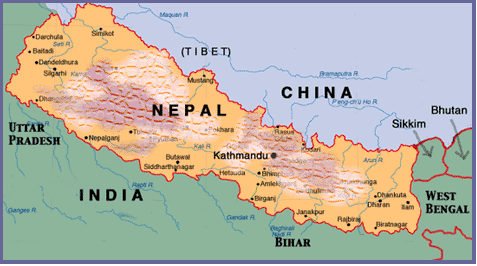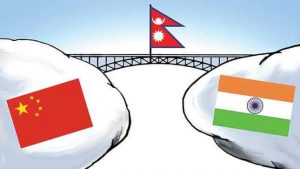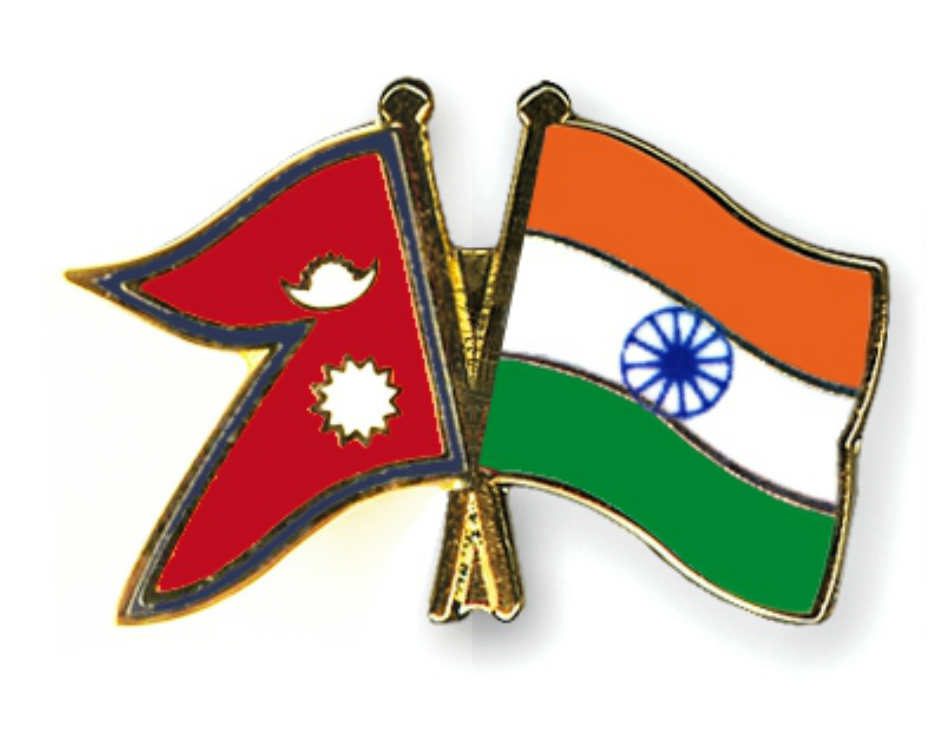Reading Time: 4 minutes
India’s foreign policy has come under criticism recently for losing neighbours to China. The criticism is made most often with respect to India’s ties with Nepal. But Nepal Prime Minister K.P. Oli’s official visit to India this week, starting April 6, offers an opportunity to set right that perception. It may be recalled that Oli’s latest stint as PM had seen New Delhi-Kathmandu ties go through a difficult phase.
Despite Narendra Modi making various PR visits to nations, India’s foreign policy has come under criticism recently for losing neighbours to China. The criticism is made most often with respect to India’s ties with Nepal. But Nepal Prime Minister K.P. Oli’s official visit to India this week, starting April 6, offers an opportunity to set right that perception. It may be recalled that Oli’s latest stint as PM had seen New Delhi-Kathmandu ties go through a difficult phase. This in part was due to miscalculations by the Indian leadership. An impression came to take hold that India was unduly interfering in Nepal’s internal politics – further exacerbated by the 2015 Madhesi blockade for which Kathmandu blamed New Delhi.
Oli today is back in power after a near-sweep by the leftist coalition comprising his CPN (UML) party and Prachanda’s Maoists in last year’s parliamentary and provincial polls. New Delhi thus needs to make a fresh beginning with the new Oli government. As some Indian officials have indicated, the days of carving out separate ‘spheres of influence’ are over. New Delhi should not be tempted by this, even if Beijing sometimes shows a penchant for such old-fashioned geopolitics.
 Asking neighbours not to deal with China will only backfire for India – New Delhi will be accused of trying to undermine sovereignty even as China, which is five times richer, has a far greater capacity and wants to pursue superpower status by throwing its weight around in Asia. Neither should New Delhi try to pick political favourites and indicate preferences regarding regional government composition. What it can do is lay down broad parameters such as upholding democracy and human rights, and work with international partners to safeguard these in the neighbourhood.
Asking neighbours not to deal with China will only backfire for India – New Delhi will be accused of trying to undermine sovereignty even as China, which is five times richer, has a far greater capacity and wants to pursue superpower status by throwing its weight around in Asia. Neither should New Delhi try to pick political favourites and indicate preferences regarding regional government composition. What it can do is lay down broad parameters such as upholding democracy and human rights, and work with international partners to safeguard these in the neighbourhood.
A good example of this would be European airlines contemplating suspending their operations to the Maldives this summer in order to pressure the archipelago nation to restore democratic functioning. This is a move that India should support with Western partners. With Nepal, India has always had a special relationship. We must continue to do what we can to help the Himalayan republic but without overt political strings attached. New Delhi can stress, for example, that it offers Nepal something that Beijing can never even remotely contemplate; unrestricted access to its citizens.
However, Nepal’s proximity to China has been a reason for India to stay vigilant. India now wants to get an idea of what this government has in store for the country. At SAARC Summit, Nepal’s cordial altered  relations with the Maldives and Sri Lanka has also worried India for some time now. It should be noted that after becoming the PM for the second time, Oli is out on his first foreign visit to India. This time the issue is about SAARC summit and Nepal’s closeness with Pakistan, too. Like the Maldives and Sri Lanka, Nepal, too, supports that SAARC summit be held in Pakistan. Besides, in the light of emergency in the Maldives, Nepal’s stand towards India is not very favourable. According to some newspaper reports if Nepali PM proposes holding the SAARC summit in Pakistan, then India will have to give a stern reaction. Definitely, strategic ties are likely to be affected by the unresolved matter regarding the Constitution. After the Uri attack, the SAARC summit stood cancelled in Islamabad in 2016. However, the three countries Nepal, Maldives and Sri Lanka insist on having the next summit there – this is definitely not acceptable to India.
relations with the Maldives and Sri Lanka has also worried India for some time now. It should be noted that after becoming the PM for the second time, Oli is out on his first foreign visit to India. This time the issue is about SAARC summit and Nepal’s closeness with Pakistan, too. Like the Maldives and Sri Lanka, Nepal, too, supports that SAARC summit be held in Pakistan. Besides, in the light of emergency in the Maldives, Nepal’s stand towards India is not very favourable. According to some newspaper reports if Nepali PM proposes holding the SAARC summit in Pakistan, then India will have to give a stern reaction. Definitely, strategic ties are likely to be affected by the unresolved matter regarding the Constitution. After the Uri attack, the SAARC summit stood cancelled in Islamabad in 2016. However, the three countries Nepal, Maldives and Sri Lanka insist on having the next summit there – this is definitely not acceptable to India.
Meanwhile, even though there have been ups and downs in the implementation of the Mahakali Treaty regarding sharing of river water between India and Nepal, it is now in its implementation stage. The scope of the Treaty covers the Sarada Barrage, the Tanakpur Barrage, and the proposed Pancheshwar project. The Treaty is not without flaws and Nepali politicians are mounting pressure on PM Oli to get the  construction of a canal completed close to the Tanakpur Barrage. Since the PM seems determined to have an increasing influence at home and abroad, he is likely to tread with caution. On the one hand, he is keen to secure the long-pending unification of the UML and Nepal Communist Party-Maoist Centre to form the proposed Communist Party of Nepal, he is also equally determined to secure a healthy relationship and walk the tightrope vis-à-vis India-China-Nepal.
construction of a canal completed close to the Tanakpur Barrage. Since the PM seems determined to have an increasing influence at home and abroad, he is likely to tread with caution. On the one hand, he is keen to secure the long-pending unification of the UML and Nepal Communist Party-Maoist Centre to form the proposed Communist Party of Nepal, he is also equally determined to secure a healthy relationship and walk the tightrope vis-à-vis India-China-Nepal.
While Nepal’s Foreign Minister said that Nepal would want to maintain a policy of equal distance between ‘India and China’, a European Union observation is indicating early signs of ethnic polarisation in Nepali society, with some groups funded by the EU. China expects that Oli will not back off from Nepal’s commitment to be part of the Belt and Road initiative, and allow China a greater involvement in Nepal’s development sector. But there are a lot of snags that the PM needs to get rid of.
This visit will be a crucial one for India and Nepal and decide the future course of events that may augur well for both the countries.
©Navodita Pande
Photos from the Internet
#China #Nepal #India #NewDelhi #Kathmandu #NepalPrimeMinister #KPOli #Pakistan #SAARCSummit #GlobalGanter #DifferentTruths


















